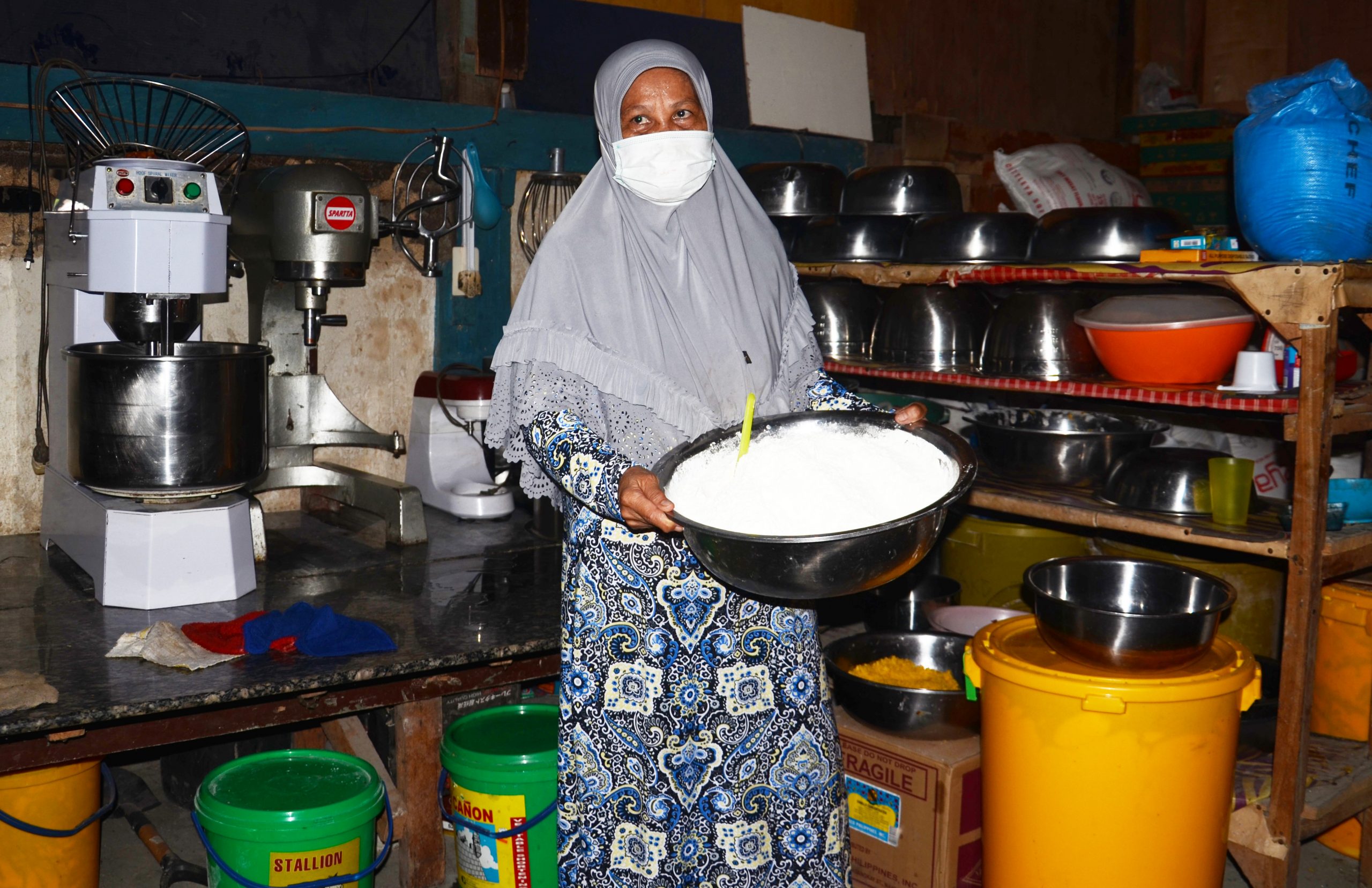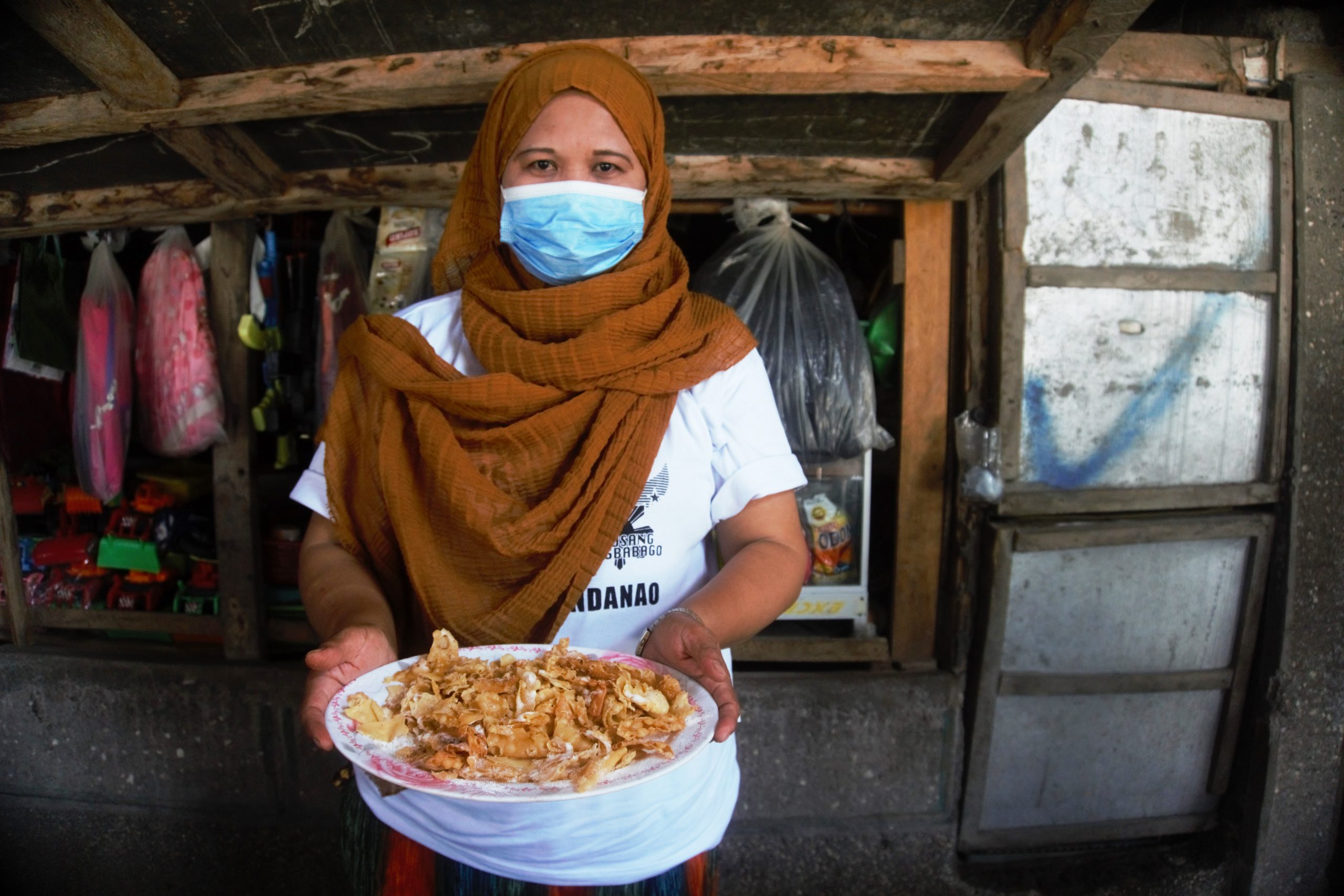Sauda A and Sauda B* not only share the same first name but they also share similar experiences of being displaced. Both women were forced to flee their homes with their families several times because of conflict and flooding, not knowing if their next home would be safe, or for how long. “We used to live peacefully in our villages but we could no longer tolerate the harassment from armed groups in the area. They came knocking at our houses in the middle of the night, and we were very scared, especially for our children,” Sauda A explains.
Originally farmers in a rural part of Muslim Mindanao (BARMM) in the Philippines, after being displaced several times, both women eventually moved to the local town center in search of stability and economic opportunity. They each started their own stores in the town market, selling cooked lunches, baked goods and small meals. But lockdowns as a result of the COVID-19 pandemic restricted movement for them and market-goers, drastically affecting their sales. Without the income from their market stalls, Sauda A and Sauda B struggled to find the money they needed to feed and support their children.
"The COVID-19 pandemic has pushed many families here to their limits,” Emilie Fernandes, RI Country Director for the Philippines.
“Relief International has helped many people like the two Saudas through programs like WeWork,” states Emilie Fernandes. “This program, a partnership with 20 local women’s groups in the area, was started to combat COVID-19 by training and empowering women in the local community to manufacture facemasks.” Over 1260 women took part in the scheme, producing thousands of masks for front line healthcare workers. Most importantly, each woman who took part in the scheme received materials and cash payment (USD$51.5) for their work; cash that was desperately needed to help them and their families survive during an intensely difficult period.
“Now that more people have access to the vaccine and are following the health protocols for prevention, and as COVID-19 cases begin slightly reducing, the lockdowns are less strict than they were. This makes it easier for local people who respect the preventative measures to sell their goods in the market,” Emilie states.
Both Saudas took part in the WeWork scheme. Sauda A used the money she earned from the project to support her family, and to buy more ingredients to cook meals that she continues to sell at the market. “Before I was only able to prepare 2 or 3 different dishes a day, but now more and more people like to come to my place as I have a larger choice of food. Business is doing well for me and my sales are getting better each day.

Sauda B preparing to bake using ingredients bought with the proceeds of the WeWork program
© RI
In Sauda A’s case she was also able to pay for much needed health services with the money she was paid. “I was diagnosed with Asthma a few months ago and could not afford the essential medicines prescribed by the doctor. It’s hard and scary not to be able to buy things like medicine. Removing that worry is so incredible!”
Sauda B used used the money she earned from WeWork to purchase ingredients for baking. “I no longer need to loan ingredients from a local shop that was charging me interest on every loan. It helps me save a lot of money,” Sauda B told RI. “I am currently renting the use of an oven from my cousin for my business, but I have a project to purchase my own oven in the future so I can be self-sufficient,” she continued.
“If it hadn’t been for RI’s support, I do not know how I would have recovered from the financial losses of COVID-19 and displacement. Now I feel confident that I can succeed in my business.”
*Names changed to protect identities.
The WeWork Project was funded by the Center for Disaster Philanthropy and has reached 1,260 women in Mindanao, in the Philippines through the work of Relief International and its partners; Ecosystems Work for Essential Benefits (ECOWEB) in Lanao del Norte, and United Youth of the Philippines- Women (UNYPHIL-Women) in Maguindanao.
